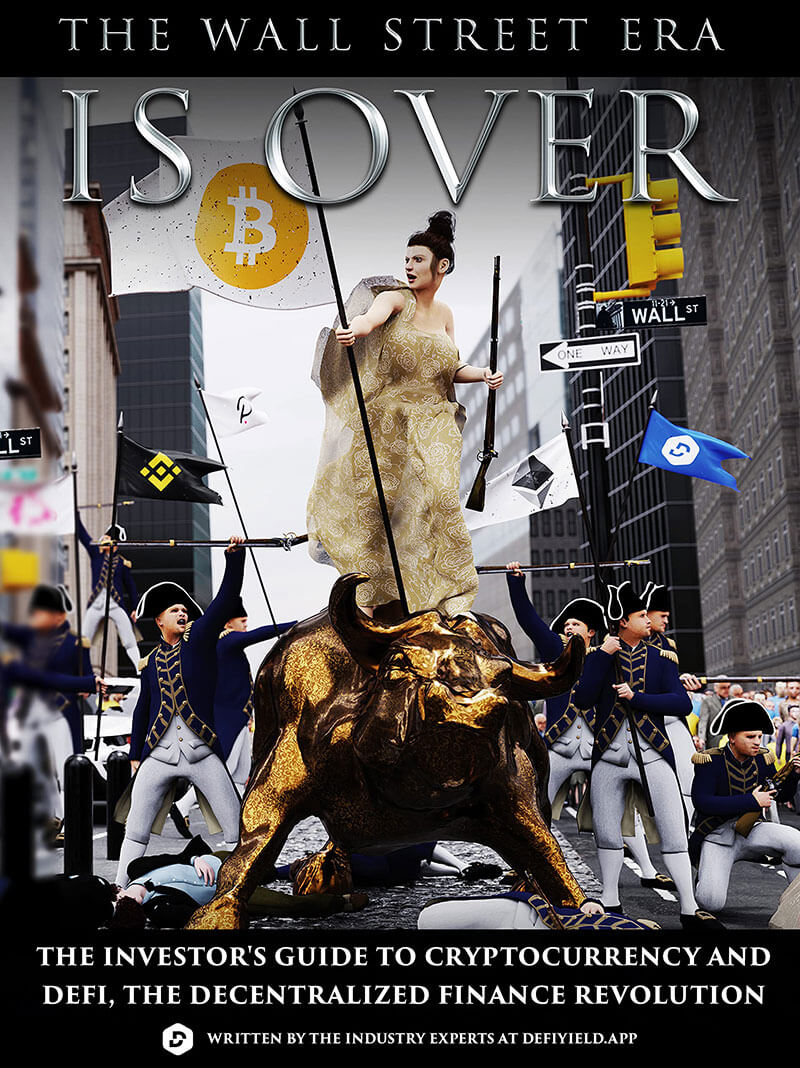The Wall Street Era is Over Book Review By Devin Scott

The book, “The Wall Street Era is Over,” was written by yield farmers for yield farmers. What is yield farming? Yield Farming is the process of using decentralized finance, DeFi, to maximize returns. So what is decentralized finance? DeFi is a financial technology based on distributed ledgers like those used by cryptocurrencies.
DeFi uses cryptocurrency and blockchain technology to manage financial transactions. Decentralized means that there is no middleman managing the system.
For example, if you have an online savings account where you earn .25% interest on your money, the bank will lend that money out and earn 2.5% on that same money. The bank keeps the 2.25% profit and pays you the .25% interest. This is typical. With DeFi, people can lend their money directly to others, cutting out the middleman (the bank), and in turn profiting the full 2.5% on their money.
The Author goes on to use the cryptocurrency Bitcoin to paint a picture. Bitcoin was initially introduced as a peer-to-peer electronic cash system, however a lot of people compare it to “digital gold”. The biggest reason is that Bitcoin has a digitally provable limited supply, which often makes it a great long term hold similar to that of gold and other precious metals. Bitcoin’s code states that there will never be any more than 21 million bitcoins in circulation. Compare that to the US dollar where the US Federal Reserve can print more money at will without any limits or technical restraints.
The value of cryptocurrency can vary wildly from one to the next, however they all share this common aspect. Programmable money. The Author goes on to explain that all cryptocurrency code is embedded with a set of rules. Ethereum for example, is a cryptocurrency that can execute smart contracts in order to empower the creation of decentralized applications (no middleman). Smart Contracts are lines of code that allow the terms of the agreement to be executed automatically without the need for a third party. (Decentralized Finance)
The Author describes that DeFi is Finance 3.0.
Finance 1.0 was a system that relied on central bank regulation, commercial bank operations and fiat currency backed by gold reserves.
Finance 2.0 featured the digitalization of commerce, payments, and banking services, but with intermediaries involved across all layers of the financial system.
Finance 3.0 is based on programmable money, smart contracts, and peer-to-peer operations that make up an entirely new, open, and decentralized financial system.
After the Author lays out the summary of what decentralized finance is, he goes into more detail about the different layers of decentralized finance, how anyone can take advantage of it, what to look out for, and some expert tips that may raise your chances of success. As this blog will not have room to go into detail, please read the book for a better insight.
The Authors are industry experts at a company called DEFIYIELD.APP. This company is an online community and resource to help investors make informed decisions. The Author’s goal throughout the book was to encourage more people to take part in Decentralized Finance, otherwise known as Finance 3.0.
Mark Cuban, a billionaire entrepreneur and investor was quoted in the book. “DeFi is really straightforward if you try it and you understand the principles behind it.” That is a great way to end. Thanks, Mark.
*Disclaimer*: Harvard Business Services, Inc. is neither a law firm nor an accounting firm and, even in cases where the author is an attorney, or a tax professional, nothing in this article constitutes legal or tax advice. This article provides general commentary on, and analysis of, the subject addressed. We strongly advise that you consult an attorney or tax professional to receive legal or tax guidance tailored to your specific circumstances. Any action taken or not taken based on this article is at your own risk. If an article cites or provides a link to third-party sources or websites, Harvard Business Services, Inc. is not responsible for and makes no representations regarding such source's content or accuracy. Opinions expressed in this article do not necessarily reflect those of Harvard Business Services, Inc.

